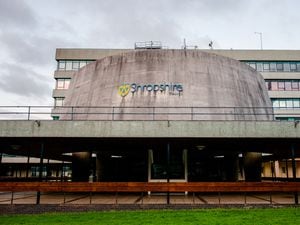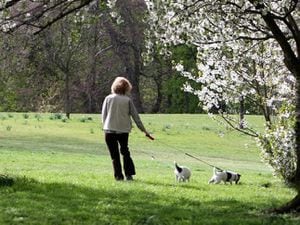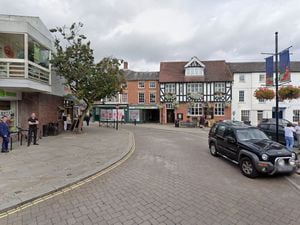Concern as River Teme in Shropshire contaminated
One of Shropshire’s rivers has been found to be polluted by small amounts of toxic chemicals.

Traces of neonicotinoids were found in the waters of the River Teme in south Shropshire.
Neonicotinoids were banned from use on flowering crops in the European Union in 2013 due to the harm they cause to bees and other vital pollinators.
Evidence is growing that neonicotinoids harm other species, such as songbirds.
The first systematic testing of neonicotinoids in rivers in Britain was conducted in 2016. The results, obtained by the conservation charity Buglife, show that half of the 16 rivers tested in England had either chronic or acute levels of contamination. Of the 23 rivers tested across Britain, neonicotinoids were not detected in six.
No official limits exist in the EU for neonicotinoid pollution in freshwater.
Like flying insects, aquatic insects are vulnerable to neonicotinoids and provide the main source of food for many fish and birds. Recent research in the Netherlands has shown chronic neonicotinoid pollution in water led to sharp drops in insect numbers and was linked to heavy falls in bird numbers.
“We are devastated to discover that many British rivers have been heavily damaged by neonicotinoid insecticides,” said Matt Shardlow, CEO of Buglife.
John Hughes from Shropshire Wildlife Trust said he was not surprised that trace levels of neonicotinoids had been found in the Teme.
But he said it was hard to determine the effects these pollutants would have on local fish stocks, insects and wildlife. “They are likely to have some sort of effect on aquatic life and it is very troubling both in terms of the wildlife and the insects that are food for so many other things,” he added.
Mark Lloyd, CEO of the Angling Trust, said: “We urge the government to act urgently to ban continued use of these chemicals to protect wildlife, fisheries and drinking water.”
The proposed EU ban would still allow neonicotinoids to be used in greenhouses and as a flea treatment for pets. A new Greenpeace study suggests neonicotinoids are frequently found in waterways close to greenhouses where they have been used.
Arlin Rickard, CEO of the Rivers Trust, said: “We work closely with farmers and growers to reduce and better target chemical and fertiliser usage, however some chemicals are just too damaging and persistent to be tolerated.”





